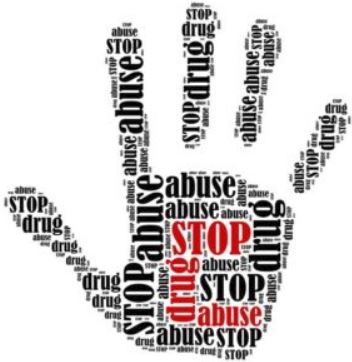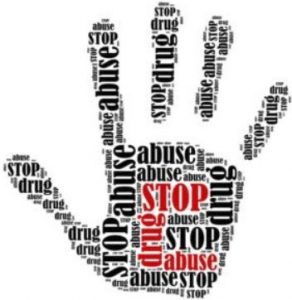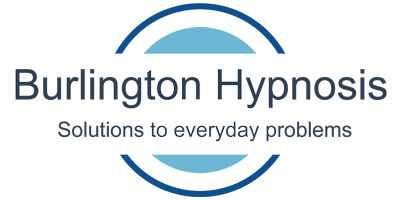
 Hypnotherapy is an evidence-based treatment for addiction, which can also be used to treat a variety of other psychological difficulties. Hypnotherapy combines the psychological process of hypnosis with psychotherapy. Hypnotherapy is conducted by a trained therapist, typically a registered psychologist, with a client who is informed about and understands and consents to the process.
Hypnotherapy is an evidence-based treatment for addiction, which can also be used to treat a variety of other psychological difficulties. Hypnotherapy combines the psychological process of hypnosis with psychotherapy. Hypnotherapy is conducted by a trained therapist, typically a registered psychologist, with a client who is informed about and understands and consents to the process.
Hypnosis is an altered state of consciousness, known as a trance state, which is deliberately induced by one person—the hypnotist or hypnotherapist—on another individual person or group of people—the hypnotic subject or subjects. The change in consciousness that occurs under hypnosis is more than just a feeling, it can actually be measured and observed on the EEG readings of the brains of hypnotic subjects.
Self-hypnosis is the practice of inducing hypnosis in oneself, and in fact, all hypnosis is a form of self-hypnosis. The main distinction between hypnosis and self-hypnosis is simply that self-hypnosis requires an understanding of how to induce hypnosis in yourself, whereas, with regular hypnosis, the hypnotic subject can benefit from hypnosis with no prior knowledge.
How Hypnotherapy Helps With Addiction
While in a hypnotic trance, the person being hypnotized, or hypnotic subject, is more open to suggestion by the hypnotist or hypnotherapist than they are in their usual fully alert state.
They generally become more passive and compliant with role-playing as directed by the hypnotist or hypnotherapist. Under  hypnosis, people can become more imaginative, more open to fantasy, and sometimes, more able to access long-forgotten memories.
hypnosis, people can become more imaginative, more open to fantasy, and sometimes, more able to access long-forgotten memories.
This relaxed and suggestible state can help people to get a different perspective on their addictive behaviors. What normally seems impossible—quitting a substance or behavior that is central to one’s existence—can seem achievable and desirable.
People undergoing hypnotherapy often get in touch with their feelings of personal mastery and power and feel able to “unlock” themselves from long-term behavior patterns that were previously inflexible and rigid.
There are many myths about hypnosis and hypnotherapy, and many of them raise the issue of whether or not hypnosis is safe. While it is safe to engage in hypnotherapy with a trained hypnotherapist, going into the experience worrying about your safety is not a good mindset for the relaxation that is central to the approach.
Therefore, if you feel anxious, worried, or suspicious about hypnosis, hypnotherapy, or your hypnotherapist, it probably is not an approach you would get much benefit from.
In some instances, people are capable of unusual mental and physical feats when they are under the influence of hypnosis. Their feelings and behaviors can also be influenced after they have come out of a hypnotic trance.
This is the main reason that hypnosis or hypnotherapy can appeal to people with addictions, as hypnosis can profoundly help people to strengthen their willpower and allow them to use their best judgment in overcoming their addictive urges and cravings.
However, those who think that hypnosis is somehow magical, and will erase their addiction in a single session are likely to be disappointed. Hypnotherapy is is a tool to unlock human potential, not a magic formula.
Hypnosis can help people to address both their addictions and associated problems, but these issues are complex and challenging both for the client and for the therapist, and hypnotherapy does not work for everyone.
By: Elizabeth Hartney, PhD
Linda found sobriety with hypnotherapy {info]
Hypnosis is a great tool supporting sobriety and healthy living. I help clients tap into the euphoric bliss of naturally occurring endorphin flow. Once individuals experience such profound relaxation, and incorporate it into their daily routine, most find it comfortably easy to maintain a substance-free lifestyle.
In addition to the feel good serenity of deep trance hypnosis, sessions include specific suggestions and imagery supporting healthy success. The subconscious then pulls in this new information and starts to piece together a new operating system of change. Listening to sessions routinely for a period of 2-3 months forms a foundation of healthy change.
We are creatures of habit, whatever we repeat, good or bad, becomes rooted in the hard drive, the subconscious mind. Hypnosis helps individuals to release unwanted patterns and plants new preferred alternatives. The transition to sobriety experienced with hypnosis is usually comfortable.
The process helps individuals feel as though they are ‘trading up’ to something better.If the individual has a legitimate desire to create healthy change; is open to be guided into hypnosis; and is consistent listening to sessions on their own; success is hard to avoid.
Most excessive drinkers initially have goals of moderation, being able to drink socially but that usually changes at some point through the process. Whatever they thought they got from alcoholis healthfully replaced by the meditative qualities of hypnosis. Clients like the way they feel, they sleep better, have more energy and are happier. [more]
By: Paul Gustafson RN CH
I do a lot of work with individuals having difficulty with alcohol. There’s a common thread with these people; they talk about once being able to drink socially; having control; and how drinking was never a problem. After a few years, they realize that alcohol is running the show.
Most talk about how alcohol becomes ever present in their day-to-day lives, and how it’s beginning to affect the quality of their life.
One of the unique qualities of hypnosis is how it can become a healthier alternative to drinking. In general the process of hypnosis is quite euphoric. It creates a sense of cathartic relief and profound relaxation. In sessions geared for excessive drinkers the euphoric factor is significantly increased.
My clients learn that hypnosis offers a more enjoyable, healthier high than alcohol. So rather than trying to find the strength to push themselves away from drinking, they are presented with the opportunity to trade up to something better.
Clients make this important connection on the first office visit, and then they learn to take the same approach to the solution as they once used to create the problem, repetition. By repeating the hypnosis process on a daily basis the mind and body make a powerful connection, and new patterns supporting lasting healthy relief are formed.
There’s nothing difficult about hypnosis at all. Even though most first visit clients have never experienced hypnosis before, the overwhelming majority do extremely well. The euphoric soaked relaxation gets their attention right away, and most leave the office quite eager to repeat the session was they get home.
I see my alcohol clients for a series of four sessions. In between office visits they listen to sessions at home at least once a day. Hypnosis creates a positive new thinking style.
It helps individuals reframe their life view. Instead of always focusing on the problem, they are guided in hypnosis to envision freedom and relief. Not only do they quickly become free of past burdens but with hypnosis they become excited about moving forward into a new healthier lifestyle.
By: Paul Gustafson RN CH
Sharon was a 38 year old woman who came to me for alcohol abuse. She got married a few years ago and was trying to have a baby. After many years of being the ‘party girl’ she realized she had a drinking problem.
She had no previous hypnosis experience but she quickly got into it because of how relaxing it was. When she came back for her 2nd session, she reported listening to session 1 everyday at home and reduced her drinking by 50%.
When she came back for session 3 she reported only drinking once all week. She went out with work mates Friday night to a pub and over indulged. She spoke at length about how badly she felt all day Saturday. It wasn’t the hangover that bothered her but rather the anger and guilt that plagued her all day long. I asked if this was a usual ‘day after’ reflection to which she said no. She had never encountered this before.
Then she said she had a social event on Sunday where alcohol was involved. She explained how great a time she had not drinking. She was more engaged with her friends and remembered all the details of the event on Monday.
Tuesday she had an epiphany. Sharon always thought alcohol added to her life. While driving home from work that day she realized the opposite was more case. In just a couple of weeks of ‘brain training’ with hypnosis she re-framed her view of drinking and decided to trade-up to an alcohol-free life.
Hypnosis can quickly offer clarity of thought and an enhanced mindful life-perspective. Challenges once thought difficult or impossible to overcome can easily be accomplished. Sharon finished the 4 session program and checked in several months after her last office visit. She was still not drinking, she lost weight and was enjoying life more than she had in a long time.
Contact Paul for free consultation:  888-290-3972 or info@burlingtonhypnosis.com and visit Burlington Hypnosis.
888-290-3972 or info@burlingtonhypnosis.com and visit Burlington Hypnosis.
Research validates that hypnosis makes it much easier to live a substance-free life. It makes sense because hypnosis gives you access to the level of thought where behavior originates.
Hypnosis initiates a sense of euphoria by stimulating the flow of endorphins. It also enhances the perception of confidence to succeed. Because the subconscious has no perception of time hypnotic suggestions can help the individual feel as thought he or she is months into substance-free success.
This removes the mountain of challenge which discourages many from even attempting to live life free of substance use.
A 2004 study involved chronic drug/alcohol users who played self-hypnosis audiotapes at least 3 to 5 times a week. After 7-weeks they reported significantly higher levels of self-esteem and serenity, and the less anger/impulsivity as compared to those who did not use hypnosis. (Am J Clin Hypn. 2004)

 Hypnotherapy is an evidence-based treatment for addiction, which can also be used to treat a variety of other psychological difficulties. Hypnotherapy combines the psychological process of hypnosis with psychotherapy. Hypnotherapy is conducted by a trained therapist, typically a registered psychologist, with a client who is informed about and understands and consents to the process.
Hypnotherapy is an evidence-based treatment for addiction, which can also be used to treat a variety of other psychological difficulties. Hypnotherapy combines the psychological process of hypnosis with psychotherapy. Hypnotherapy is conducted by a trained therapist, typically a registered psychologist, with a client who is informed about and understands and consents to the process. hypnosis, people can become more imaginative, more open to fantasy, and sometimes, more able to access long-forgotten memories.
hypnosis, people can become more imaginative, more open to fantasy, and sometimes, more able to access long-forgotten memories.









